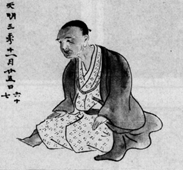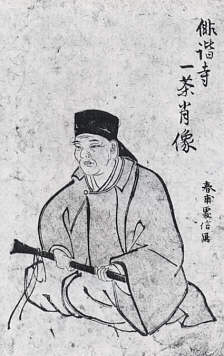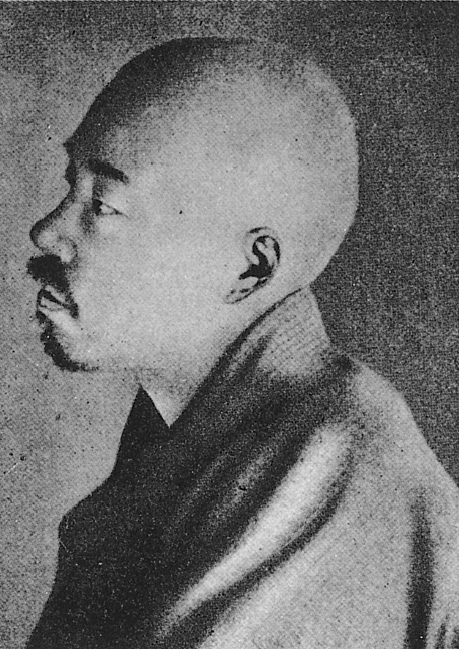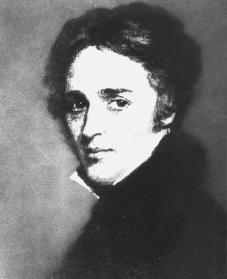Today I am going to write about haiku, a well-known but much abused form of poetry which in its purest form has given me much pleasure in my life.
However, I need to start with a bit of a rant because of the abuse people subject haiku to. People regularly churn out much nonsense and call it haiku and I feel the need to spell out here what haiku really is before I share some of the works of four great haiku masters from Japan.
However, I need to start with a bit of a rant because of the abuse people subject haiku to. People regularly churn out much nonsense and call it haiku and I feel the need to spell out here what haiku really is before I share some of the works of four great haiku masters from Japan.
Randomly writing some words in 3 lines is NOT haiku. (I have been guilty of the same before but have usually corrected myself by calling them poemkus, not haikus.) You can be witty and clever in haikus but not all witty short 3-line poems are haikus. And I am with the school of haiku writers who believe that while writing haiku in English, you do not have to stick to the Japanese 5-7-5 syllable count since the English syllable and the Japanese onji are very different. Some argue that 17-syllables in Japanese correspond to 12 in English; and so if anything, the English haiku has to be even shorter than what most people attempting haiku in English write. However, to get stuck in such number-games is to lose the essence of haiku.
And speaking of the essence of haiku, let me say something about it. A haiku is no place for grand-standing and showcasing similies, metaphors, and poetic wizardry. Haiku took inspiration in its early days from Chinese poetry and T'ang dynasty (7th to 9th century AD) poems and also Chinese silk paintings, where a moment is captured, without any personal commentary -- it is an objective and impersonal rendition of a passing moment, a feeling. An attempt to capture the pure and the real where word-play merely distracts. Metaphors distract. Anything which is artificial or even bears the mark of the poet's wit or presence takes away from the essence of refined imagery and concentration that a haiku seeks to capture. The totality of the poem is just the image and haikus have often been rightly called poetry without ideas. One reads the poem and it does not tell you anything - it merely shows you a moment in time.
Or as someone has more elouently written (The Japanese Haiku, Kenneth Yasuda, 2002):
Or as Isoji Ado has put it (as quoted in Yasuda's book The Japanese Haiku):
For me, what Ford Madox Ford said about imagist poetry is perhaps true of all poetry and all writing even ....but when this rule is violated in haiku, it no longer can be called haiku.
Thus, the haiku is a way for us to experience the everyday real vividly and directly -- helping us to live with "intense awareness" and with "an openness to existence around us." Live in the present - in the now. A haiku then, does not try to share the poet's feelings with us but shares the causes of those feelings.
Or as Higginson in his amazing Haiku Handbook writes:
This deep unity in the poet and his experience is then communicated to the reader concisely without fanfare and without anything taking away from the essence of the moment itself. A haiku then is poetry (and some would argue, life) at its bare minimum, at its most austere but at its purest and most real.
In short, the aesthetic of a haiku has been corrupted by many who think cobbling together some words in three lines makes it a haiku. And while I could go on and on about this, suffice it is to say that...
One last note about the haiku and its usual inclusion of a seasonal reference (kigo). I tend to be a bit of a purist and like haiku where some sense of time (be it the time of the day or the time of the year/seasons) is communicated to the reader. However, most haiku these days, especially those written in English, do not include a kigo. And I am not such a stuck-up purist that I insist on calling anything without a seasonal reference as not being a haiku.
Note: A senryu, a form of poetry closely related to the haiku, instead of dealing with nature, is specificially about human nature and human relationships...and does not usually include a season reference. But more about senryus some other time; I still need to study and read a lot more senryus by Japanese and other masters of that genre.
And speaking of the essence of haiku, let me say something about it. A haiku is no place for grand-standing and showcasing similies, metaphors, and poetic wizardry. Haiku took inspiration in its early days from Chinese poetry and T'ang dynasty (7th to 9th century AD) poems and also Chinese silk paintings, where a moment is captured, without any personal commentary -- it is an objective and impersonal rendition of a passing moment, a feeling. An attempt to capture the pure and the real where word-play merely distracts. Metaphors distract. Anything which is artificial or even bears the mark of the poet's wit or presence takes away from the essence of refined imagery and concentration that a haiku seeks to capture. The totality of the poem is just the image and haikus have often been rightly called poetry without ideas. One reads the poem and it does not tell you anything - it merely shows you a moment in time.
Or as someone has more elouently written (The Japanese Haiku, Kenneth Yasuda, 2002):
''What's important is not only what is said, but also what is left unsaid."And upon reflection, you instinctively feel the sense of that moment, without ever having been there of having yourself experienced it. A successful haiku renders then a vibrant image that speaks to you in silence. The haiku does not preach or sermonize and is "enjoyed intuitively, through an act of immediate perception, without conscious effort or reasoning. In its essence, it is non-judgemental, amoral, non-verbal, and uncritical."
Or as Isoji Ado has put it (as quoted in Yasuda's book The Japanese Haiku):
"What governs such an art (as that of haiku) is not a concept or logic, feeling or rationalism.... even if we find an idea in it, that idea is something diffused throughout the entirety of the art product, like the air."
Thus, "a successful haiku renders a speaking, vibrant image -- one that lives its own life and captures a moment of absolute intensity where the poet's grasp of his intuition is complete and captured fully in the image itself."
Put another way, "the picture is so beautiful that to claim "How beautiful it is" would be so superfluous and intrusive."
For me, what Ford Madox Ford said about imagist poetry is perhaps true of all poetry and all writing even ....but when this rule is violated in haiku, it no longer can be called haiku.
"Poetry is a matter of rendering, not comment. you must not say: 'I am so happy'; you must behave as if you were happy." - Ford Madox Ford (Imagist Anthology, 1930)
Thus, the haiku is a way for us to experience the everyday real vividly and directly -- helping us to live with "intense awareness" and with "an openness to existence around us." Live in the present - in the now. A haiku then, does not try to share the poet's feelings with us but shares the causes of those feelings.
Or as Higginson in his amazing Haiku Handbook writes:
"Stating the feelings alone builds walls; stating the causes of the feeligs builds paths. Haiku not only gives us moments from the writer's experience but go on to give us moments of our own"...lending itself to the "sharing of small intimate things" or even "Dramatic moments the authors found in common every day occurrences".
This deep unity in the poet and his experience is then communicated to the reader concisely without fanfare and without anything taking away from the essence of the moment itself. A haiku then is poetry (and some would argue, life) at its bare minimum, at its most austere but at its purest and most real.
In short, the aesthetic of a haiku has been corrupted by many who think cobbling together some words in three lines makes it a haiku. And while I could go on and on about this, suffice it is to say that...
"A haiku is not just a pretty picture in three lines .... what distinguishes a haiku is concision, perception, and awareness. ....A haiku is a short poem recording the essence of a moment keenly perceived in which Nature is linked to human nature." (The Haiku Anthology by Cor van den Heuvel).
One last note about the haiku and its usual inclusion of a seasonal reference (kigo). I tend to be a bit of a purist and like haiku where some sense of time (be it the time of the day or the time of the year/seasons) is communicated to the reader. However, most haiku these days, especially those written in English, do not include a kigo. And I am not such a stuck-up purist that I insist on calling anything without a seasonal reference as not being a haiku.
Note: A senryu, a form of poetry closely related to the haiku, instead of dealing with nature, is specificially about human nature and human relationships...and does not usually include a season reference. But more about senryus some other time; I still need to study and read a lot more senryus by Japanese and other masters of that genre.
So, finally on to the four great masters of Japanese haiku (Basho, Buson, Issa, and Shiki)... starting with the man credited with starting it all:

Basho, Matsuo (1644 - 1694)
On a withered bough
A crow alone is perching
Autumn evening now
Even in Kyoto—
hearing the cuckoo's cry—
I long for Kyoto.
From the plum-scented air
Suddenly the sun comes up
On the mountain road.
Season of spring days
There a nameless hill has veils
of soft morning haze.
In the cicada's cry
There's no sign that can foretell
How soon it must die.
Oh, the first soft snow!
Enough to bend the leaves
of the jonquil low.
The sound of hail -
I am the same as before
Like that aging oak
A lovely spring night
suddenly vanished while we
viewed cherry blossoms
Temple bells die out.
The fragrant blossoms remain.
A perfect evening!
Harvest moon:
around the pond I wander
and the night is gone.
No blossoms and no moon,
and he is drinking sake
all alone!
Won't you come and see
loneliness? Just one leaf
from the kiri tree.
The years first day
thoughts and loneliness;
the autumn dusk is here.
Winter seclusion:
once again I lean
against this post.
No one travels
Along this way but I,
This autumn evening.
Fallen sick on a journey,
In dreams I run wildly
Over a withered moor.
You can read some more of Basho's haiku here and also read these varying translations of Baisho's haiku, as translated by three renowned translators: R. H. Blyth, Lucien Stryck, and Peter Beilenson.
I'll leave you with this link to 31 varying translations and a commentary about Basho's famous frog haiku.
Furuike ya
kawazu tobikomu
mizu no oto
The old pond--
a frog jumps in,
sound of water.
(translated by Robert Haas)
Note that the frog in this haiku does not croak - the sound you hear is the splash of the frog jumping into water, not the croaking of the frog. This is a great example to illustrate the essence of haiku that I was trying to explain earlier -- it merely is an image capturing a moment, a feeling, not an ode to a croak or a bird's beautiful voice, etc! (None of the flourishes that mark Western poetry of the Romantic era!)
Next up is some of Buson's haiku, most taken from two links I found online through a cursory search.

Buson, Yosa (1716 - 1784)
The air shimmers.
Whitish flight
Of an unknown insect.
In the rains of spring
An umbrella and raincoat
Pass by, conversing.
A kite floats
At the place in the sky
Where it floated yesterday.
A camelia flower
As it drops, spills the water
From the yester-shower.
Short summer night.
A dewdrop
On the back of a hairy caterpillar.
Whose thin clothes
still decorate the gold screen?
Autumn wind.
A mosquito buzzes
Every time flowers of honeysuckle fall.
Four or five men dance in a circle.
Above them
The moon is about to drop.
Willow trees are bare
Dried the water and the stones
Lie scattered here and there
Being awake
He says he is already asleep.
Autumn chilly night.
As utterly blank as it is,
I can’t stop looking
at my lover’s fan.
Behind the warehouse row,
a road busy with the back-and-forth
of barn swallows.
All in one line, the wild geese,
and the moon in the foothills
for a seal.
The blossoming pear—
a woman reads a letter
in the moonlight.
There's an entire book of haikus by Issa that I got from Boston Public Library but have not had the time to study it in great detail though I've read many of the haikus and enjoyed them. A great index of Issa's haikus is also available online but for now, included here are a few examples:

Issa, Kobayashi (1762 - 1826)
The toad! It looks like
it could belch
a cloud.
serenly
gazing up at the mountain -
a toad
Frog and I,
eyeball
to eyeball.
From the bough
floating downriver,
insect song.
Plum blossoms:
My spring
Is an ecstacy.
As the great old trees
are marked for felling, the birds
build their new spring nests
Seeming as though
this must be the last of it --
so much spring snow!
Cool breeze,
tangled
in a grass-blade.
House burnt down -
fleas
dance in embers
A sheet of rain.
Only one man remains among
cherry blossom shadows
Moon, plum blossoms,
this, that,
and the day goes.
Summer night -
even the stars
are whispering to each other.
Heat shimmers -
clinging to my eyes
is that smiling face
Also, here are some of Issa's haiku, as translated by Robert Bly.
Near my house
from the first day, the frog
sang about old age.
The temple bells stop—
but the sound keeps coming
out of the flowers.
New Year's Day— my
tumble down hut
is about the same.
Cherry blossoms in evening.
Ah well, today also
belongs to the past.
The spring day lastsAnd a few lovely ones, translated by Robert Hass.
a little longer
around water.
Don’t worry, spiders,
I keep house
casually.
Under the evening moon
the snail
is stripped to the waist.
New Year’s Day—
everything is in blossom!
I feel about average.
All the time I pray to Buddha
I keep on
killing mosquitoes.
Shiki, who lived and wrote after Japan opened up to the Western world and new ideas during the Meiji restoration, is crediting with taking the haiku in new directions - beyond Basho, Buson, and Issa. (He also is credited with revitalizing the tanka, which I will not write about here.)

Shiki, Masaoka (1867 - 1902)
Most of the haiku by Shiki below are taken from this site but you can read some more here.
I turned back to see
But the man I passed was veiled
In mist already
Lotus leaves in the pond
Ride on water.
Rain in June.
Smoke whirls
After the passage of a train.
Young foliage.
The wild geese take flight
Low along the railroad tracks
In the moon-lit night.
cold winter blast
a cord of a sedge hat
cut into my neck
the sun set behind
a traveling monk
tall in the withered field
wheat sowing
the mulberry trees
lift bunched branches
pine and cypress
in a desolate filed
a Fudodo shrine
locusts fly low
over rice paddies
in the dim sun ray
red dragon fly
in the sky of Tsukuba
no cloud
looking up
what a high pagoda
in the autumn sky
by persimmon trees
surrounded
hot spring
water plant blossoms
still white
autumn wind
an infant
steps on the green grass
barefoot
After suffering throughout his life with tuberculosis (in fact, he took up the name Shiki for the Japanese cuckoo, which will sing until it coughs out blood), with death approaching, he is said to have composed this haiku:
a late summer cicada
at the top of his voice
chirping, and chirping . . . . . . .
I had hoped to include some haiku (or closely related short poems) written in English also today but that will have to be saved for some other day as I have already been at this post for almost three hours and need to take a break.
Suffice it is to say that the haiku, traditionally a Japanese art form for many centuries, has become very popular in the Western world in the 50-odd years and there are quite a few books on haikus for the English reader. So, I will leave you where with a list of books that tell you more about the art of reading, appreciating, and writing haiku. The first five books especially are must-reads for any fan of this minimalist form of poetry that has much richness to offer. You can also read this excellent essay on the American haiku.
- An Introduction to Haiku: An Anthology of Poems and Poets from Basho to Shiki by Harold Gould Henderson
- The Japanese Haiku by Kenneth Yasuda (2002)
- The Haiku Handbook - How to Write, Teach, and Appreciate Haiku
- The Essential Haiku by Robert Hass
- The Haiku Anthology by Cor van den Heuvel (3rd edition, 2000) -- one of my favorite collections of haiku for haiku written in the English language. Every year, I feel the need to check this book out of the public library for a few weeks and dip into it; finding new joy each time as I re-read the same haiku that I have read the previous year again. It is a treasure-trove for haiku lovers writing in English, like I do, and I highly recommend it.
Note: In the list above, I have not listed books that are not easily accessible but were some of the early books about haiku in English and remain great treasures for anyone who is interested in studying haiku in greater depth. I'm refering to Blyth's 4 volumes of Haiku (1949-52), Bluth's History of Haiku (1964), Henderson's Introduction to Haiku (1958) and Haiku in English (1965), Hackett's The Way of Haiku (1969), which was revised later into a larger edition called The Zen of Haiku (1983), etc.
Listed below are some books which showcase the haikus of the great Japanese masters:
And with that comes to an end my month-long National Poetry Month celebration. I'll blog about poetry and literature from time to time again but not sure if I'll be blogging every day.
- Classic Haiku: The Greatest Japanese Poetry from Basho, Buson, Issa, Shiki, and Their Followers
- The River of Heaven: The Haiku of Basho, Buson, Issa, and Shiki
- Cherry Blossoms. Japanese Haiku Series III. Translations Of Basho, Buson, Issa, Shiki and Others
- Haiku: An Anthology of Japanese Poems
- The Sound of Water: Haiku by Basho, Buson, Issa, and other poets
- Matsuo Basho by Makoto Ueda
- Basho's Narrow Road: Spring and Autumn Passages (Rock Spring Collection of Japanese Literature)by Matsuo Basho and Hiroaki Sato
- Basho's Haiku by David Landis Barnhill
- A Chime of Windbells - A Year of Japanese Haiku in English Verse by Harold Stewart
- One Hundred Frogs - From Renga to Haiku in English by Hiroaki Sato (1995)
- From the Country of Eight Islands: An Anthology of Japanese Poetry by Hiroaki Sato (1987)
And with that comes to an end my month-long National Poetry Month celebration. I'll blog about poetry and literature from time to time again but not sure if I'll be blogging every day.










